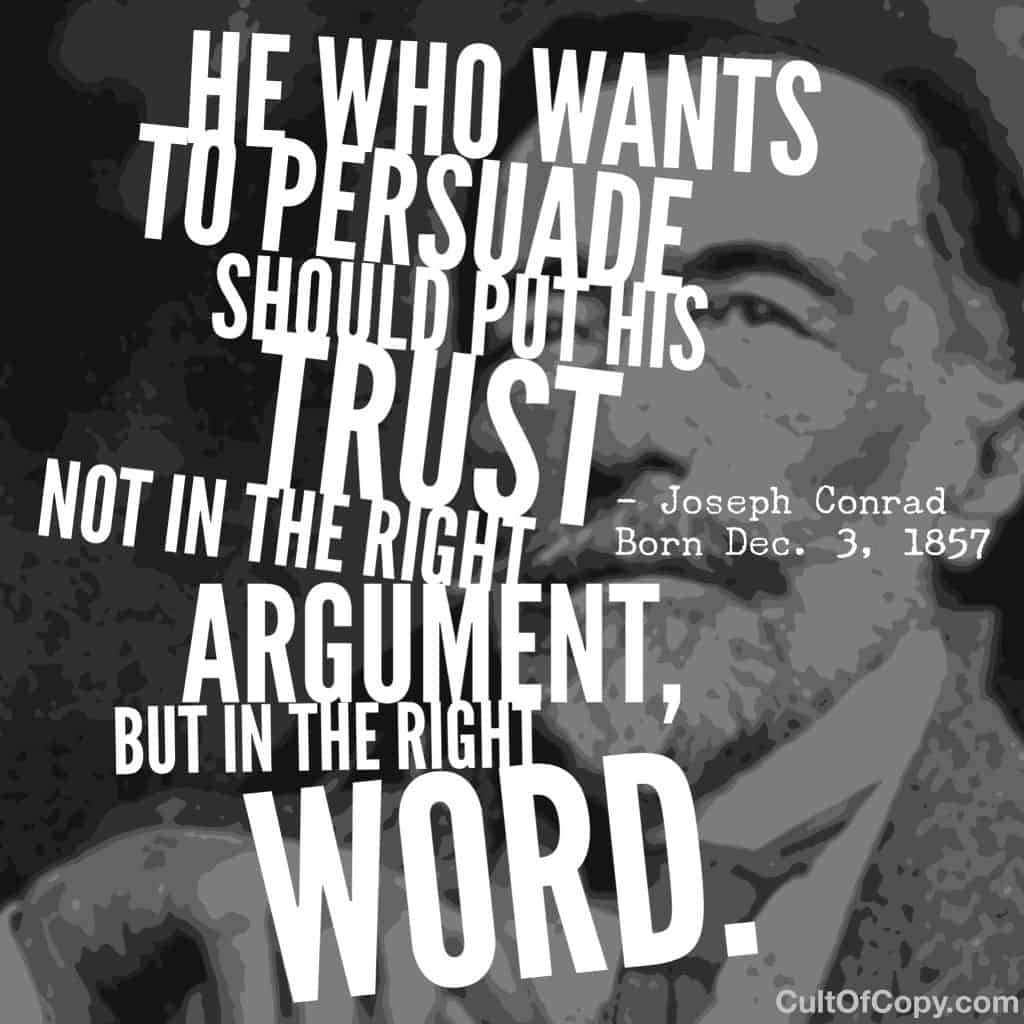“He who wants to persuade should put his trust not in the right argument, but in the right word. The power of sound has always been greater than the power of sense.” – Joseph Conrad, Born Dec. 3, 1857.
This is why your work needs to read the way people speak. Because the mind's ear wants to sound out written speech, and you can HEAR IT.
You can *hear* it.
Yooooou caaaannnnn heeeeear it!
YOU can hear it.
You CAN hear it.
You can HEAR it.
You can hear IT.
Always be aware of how your writing sounds. Where does the emphasis fall? What is the rhythm?
…are there pregnant pauses?
…
What is the pacing?
Pay attention. Say it out loud, if it helps.
What does your copy SOUND like?
Punctuation can not only be used to correctly create context and meaning in your sentences. But it can also be used to change the way your copy sounds inside the reader's mental “ear”.
Mostly, you can use punctuation to change the pace of things. Ellipses, for example, create… a long pause. Even moreso if you…
…break to a new line. In writing, space = time.
By creating sentences of different lengths, you can dictate the rhythm of the speaking voice your reader can “hear” in their head. Like this.
Long, flowing sentences can be used to explain a key point, and when followed by a short sentence to sum up the point? It works.
Note – how many people heard the word “point” above rise in pitch? The way people do I with their voice when speaking a question aloud. See?
(Did you do it again just now?)
(Do parenthetical phrases like this *sound* like a private, hushed aside… Almost like a whisper?)
Using punctuation incorrectly on purpose can do interesting things, too. To add rhythm and emphasis, you can put a period at the end of each word when you are being super serious. Super. Duper. Serious.
Of course, everyone knows that if you want to SHOUT you use ALL CAPS! HYSTERICAL SHOUTING HAS NO OTHER PUNCTUATION AT ALL EXCEPT MULTIPLE EXCLAMATION POINTS AT THE END!!!
If you want to stress a word in a sentence, as if it would be given *special* emphasis when spoken, you would normally use bold or italics. But in a post like *this* you need to be creative.
So be sure to use punctuation and capitalization and deliberately bad grammar to take control of your written word and make it “sound” more like the spoken word, and it it will JUMP off the page!
So… Do it.
Do. It.
DO IT!
DO!!! IT!!!
Doooooooooo iiiiiiiiiiiiiiiit.
…
…
(Do it.)


100% IN love with this post. Well explained and of course the cadence was perfect. I endeavor to write with a lot of this in mind.
Thank you as always for your shares.